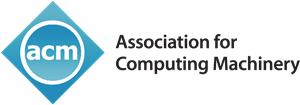COVID-19 information
We do hope that it will be possible to celebrate the conference in Rome. Rome in September welcomes the end of the summer and this means beautiful weather, lovely sightseeing opportunities and glorious dinners out, with only that touch of chillier temperatures that make the city pleasant rather than oppressively hot like in August.
Nevertheless, in view of the possible travel restrictions, the conference will be held in the form of a hybrid conference with as many authors and participants as possible attending the conference in Rome in person, and others attending remotely. The technical program will include physical sessions with on-site presentations and virtual (on-line) sessions for remote participants.
More details in the next weeks.
SCOPE
The emergency resulting from the COVID 19 pandemic has led to a radical change in our lives. At home, at school, at work, in free time and beyond: people have been asked to change their habits, adopting a lifestyle that can protect the collective well-being. The persistence of the emergency situation and the lockdown is putting a strain on the population; among the main problems, we cite social distancing for the most vulnerable individuals, distance learning for children, health pressure for doctors and patients, forced closures for traders, the uncontrolled spread of fake news that confuse the population, the tourism stop that hinders culture, etc.
The ongoing change requires the adoption of innovative solutions to tackle emerging problems and technology offers great opportunities for social good. The whole society can make use of technological tools to the health, physical, mental and psychological well-being safeguard of individuals. The goal of this session is to assess the state of tools and methods to support the population and institutions during the management of the COVID19 emergency, creating new opportunities for the future.
TOPICS
Authors are solicited to submit original, previously unpublished papers in the following, but not limited to, topic areas:
- IT for education in a COVID-19 era
- Decision support systems and algorithms for COVID-19 data analysis
- IT for remotely delivered solutions for Cultural Heritage
- Game, entertainment, and multimedia applications in a COVID-19 Era
- Health and social care toward protection from contamination
- Privacy and trust issues and solutions in a COVID-19 Era
- IT solutions for safe and healthy environments
- IT solutions addressing the Isolation
- IT solutions empowering initiatives by local communities in a COVID-19 Era
- Ethical computing in a COVID-19 Era
- IT solutions to disseminate reliable and high-quality information in a COVID-19 Era
We welcome both theoretical and empirical studies, as well as contributions from industry/organizations dealing with the special session topic.
Papers should be submitted via the HotCRP submission website; see Authors section. All accepted and presented papers will be included in the ACM Digital Library.
Program Committee
- Federico Bianchi, Politecnico di Milano, Italy
- Cinzia Cappiello, Politecnico di Milano, Italy
- Luca Cernuzzi, Universidad Católica “Nuestra Señora de la Asunción”, Paraguay
- Sara Comai, Politecnico di Milano, Italy
- Mladjan Jovanovic, Singidunum University, Belgrade, Serbia
- Maristella Matera, Politecnico di Milano, Italy
- Leysan Nurgalieva, Trinity College Dublin, Ireland
- Cristhian Parra, United Nations Development Programme, Paraguay
- Carlos Rodriguez, University of New South Wales, Australia
- Fabio Salice, Politecnico di Milano, Italy
Sponsored By ACM SIGCAS
In collaboration with:






